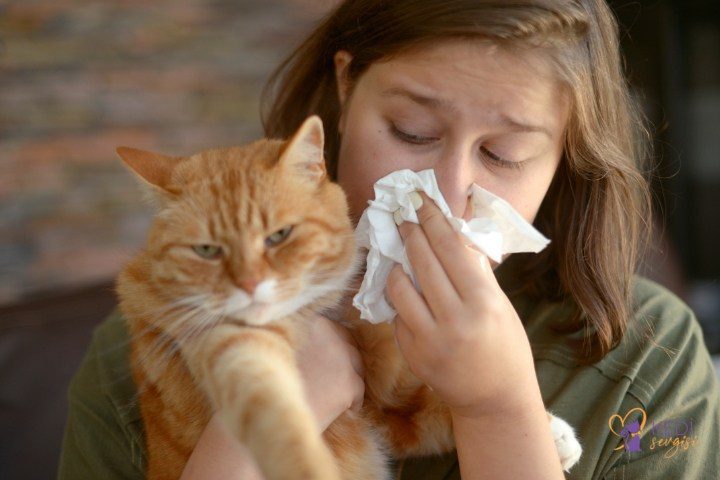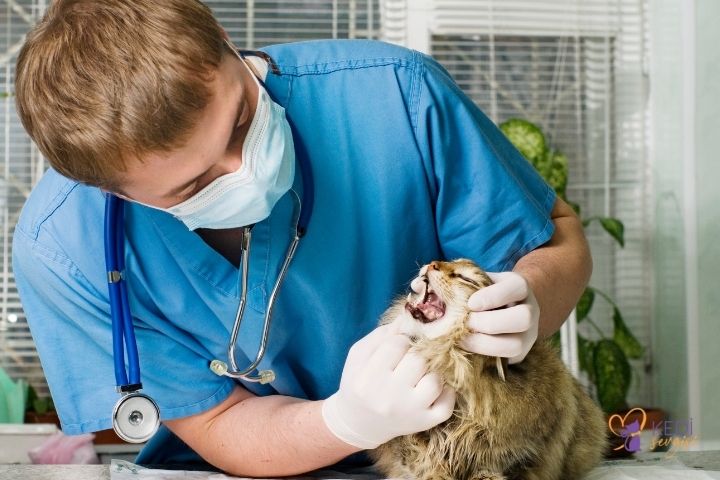Cat Allergy, Symptoms and Treatment

This topic, which we discuss in detail about cat allergy, symptoms and treatment, is of great interest to cat owners. This type of allergy, which is mild or severe depending on the person’s structure, is frequently experienced today. So what is cat allergy, how does it happen and what are the symptoms? You will find answers to all these questions in the rest of the article. If you experience runny nose, itching or sneezing during or after contact with cats, you probably have cat allergy. Moreover, you do not need to have a cat in your home to experience this allergy. Stray cats can also trigger cat allergy.

What is Cat Allergy?
The question “What is cat allergy?” is important for cat owners. Cats are creatures that can cause many different allergic reactions. They can affect humans through their fur, skin or saliva. This is not specific to some cats. All cats are capable of producing allergens. But most people are immune to these allergens and are not affected. However, some individuals encounter cat allergy, albeit rarely. We often encounter the problem of whether I am allergic to cats in our environment. The allergic reaction is not only caused by allergenic substances produced by cats. Some cats have pollen and dust in their fur and this can affect you negatively. In this case, you are not allergic to the cat. It would be more accurate to say that you are allergic to pollen and dust.
Cat Allergy Symptoms
Symptoms of cat allergy vary depending on the individual’s constitution and how much exposure they have had. Some people may experience mild symptoms, while others may experience severe symptoms. If you are sensitive to other types of allergies, you will probably have a high incidence of cat allergy symptoms. So what are the symptoms of cat allergy? It is useful to state the subject in a few points.
- Sneezing after contact with the cat
- Frequent nasal congestion
- Feeling pain in the facial area in parallel with nasal congestion
- Intense cough and chest tightness
- Cat allergy can also cause reactions such as shortness of breath and wheezing.
- In rare cases, skin rashes may occur.

Cat Allergy Treatment
Cat allergy cannot be diagnosed by veterinarians. Specialized health teams should be consulted. If you are allergic to cats, this should not upset you. The problem you are experiencing does not prevent you from loving cats. Because cat allergy treatment is possible. So how is cat allergy treatment done? Does allergy to cats go away? Here are the details… In case of cat allergy, there are measures you can take in addition to medical support. When you apply these measures, it is possible to minimize allergic reactions. Here are allergy prevention methods for cat owners :
- Close your bedroom door when you sleep at night. This will prevent allergies when you wake up in the morning.
- Limit the areas of the house where your cat can roam during the day. You can start by closing the door to some rooms.
- Always disinfect your hands with soap after contact with your cat.
- Cats shed hair. Therefore, using a good quality vacuum cleaner will reduce your allergies.
- Have your cat regularly groomed by a veterinarian.
We have presented all the curious information about cat allergy. If you like our article, you may be interested in Why Cats Sleep on Their Backs. You are also invited to our Instagram account where we share daily posts.






